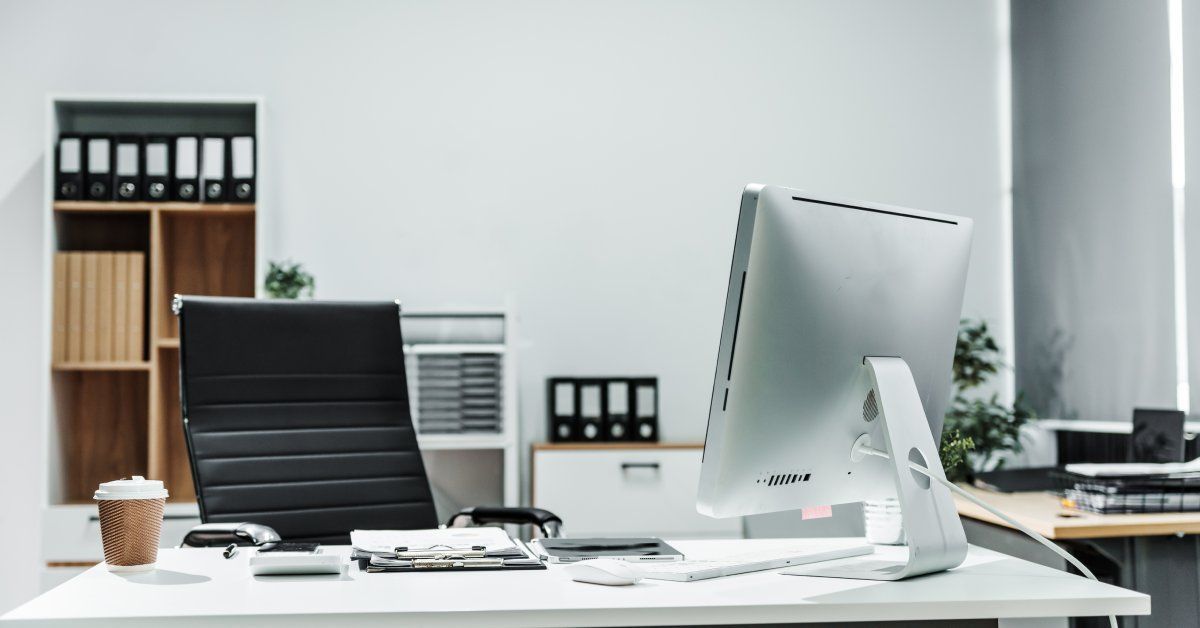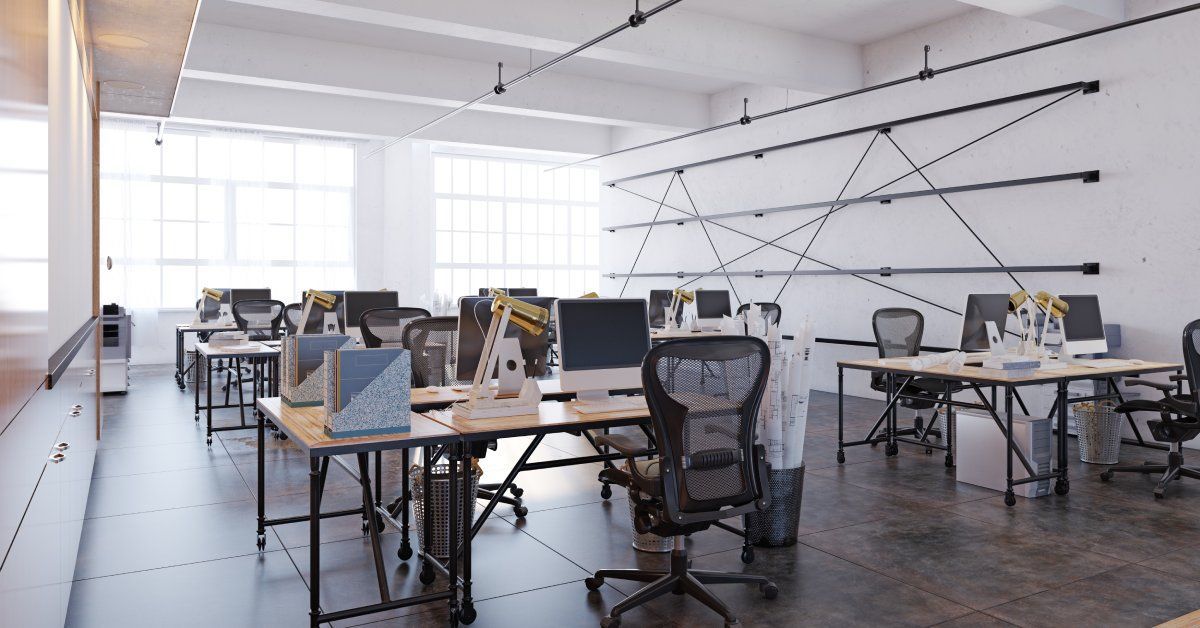The Dos and Don’ts of Private Workspace Etiquette
Maintaining harmony in private workspaces is a delicate balance. Whether you’ve worked in an office environment for several years or you’re settling into an office for the first time, understanding office etiquette can enhance the entire workforce’s productivity and satisfaction.
The dos and don’ts of private workspace etiquette is not just about following rules; it’s about fostering mutual respect and consideration. These tips will help you become a thoughtful, considerate coworker who contributes to a positive work environment.
What Are Private Workspaces?

Private workspaces offer individuals a quiet and focused environment ideal for productivity. These spaces can range from individual offices to small, shared rooms where professionals can work without the distractions that open office layouts commonly cause. The private workspaces balance privacy and collaboration, giving employees the space they need to focus while still permitting teamwork opportunities.
The appeal of private workspaces lies in their versatility. They accommodate everything from confidential meetings to individual project work. However, this setup also requires understanding and respect to ensure everyone thrives in the workspace.
Knowing how to respect everyone’s personal area is a necessity. Etiquette becomes the framework that ties organization, comfort, and productivity into one cohesive environment.
The Importance of Workplace Etiquette
Workplace etiquette is the foundation for positive work relationships and environments. When the entire staff upholds workplace etiquette, private workspaces become hubs of focus, creativity, and collaboration. Without etiquette, the environment can quickly devolve into zones of frustration and missed opportunities. From ensuring optimal levels of comfort to fostering good professional rapport, workplace etiquette positively impacts both the individual and the collective.
Making a habit of good etiquette benefits colleagues and reflects positively on you. It demonstrates self-discipline, boosts your reliability in the eyes of teammates, and creates opportunities to strengthen connections in the office.
The Dos of Private Workspace Etiquette
Adopting good habits isn’t just polite; it’s essential for maintaining a productive environment. Here are the best practices for exemplary private workspace etiquette.
Keep Noise to a Minimum
A peaceful work environment allows everyone to focus. Managing noise levels is a large component of maintaining peace.
Use headphones when listening to music, attending virtual meetings, making phone calls, and watching videos. For conversations, lower your voice and move to a designated meeting area for lengthy discussions.
Treat noise as an occasional necessity rather than a background constant. Coworkers will appreciate the quiet atmosphere. You’ll set a standard of thoughtfulness that encourages others to do the same.
Maintain Cleanliness
They say a clear desk contributes to a clear mind. Maintaining cleanliness is vital to workspace etiquette. Regularly clean and organize your desk space to ensure it remains free of clutter. Dispose of trash promptly. If you use shared or communal areas, leave them as tidy as you found them.
Keeping things neat shows respect for communal spaces and the people who use them. Plus, working in a clean, organized space will enhance everyone’s focus and efficiency.
Respect Privacy
A private workspace is a designated personal area. Be kind and knock before entering someone’s office. Avoid peeking at colleagues’ screens or eavesdropping on private conversations. Respecting these unspoken boundaries fosters a safe and comfortable work environment for everyone.
While collaboration is essential, respecting privacy ensures your workplace remains a space where individuals feel valued and secure.
Use Shared Resources Responsibly
Treat shared office resources, like printers, supplies, or kitchenette items, with care. If supplies are running low, take the initiative to replenish them or inform the appropriate personnel. When equipment breaks or malfunctions, report it promptly rather than passing the hassle on to the next person.
Handling shared resources responsibly reflects your awareness of the collective workspace and makes everyone’s day a bit smoother.
Communicate Effectively
Professional and polite communication is crucial whether you’re writing an email or chatting face-to-face. Address issues thoughtfully and use clear, concise language to avoid misunderstandings. Keep an open mind when addressing challenges.
Good communication can make a huge difference in resolving workplace concerns while building stronger connections among colleagues.
The Don’ts of Private Workspace Etiquette
Even minor missteps can disrupt workplace harmony. To avoid these faux pas, steer clear of these common etiquette pitfalls.
Don’t Interrupt Someone Unless Its Necessary
Interruptions can throw anyone off track, especially when immersed in a demanding task. Unless it’s urgent, try to avoid disturbing your coworkers. Instead, send a quick message to see if they’re available to chat or schedule a meeting.
Minimizing interruptions helps create an environment where focus and productivity can flourish, benefiting the entire team.
Don’t Make Excessive Noise
Noise is a common disturbance because it can instantly pull colleagues away from their tasks. Be aware of how you use your space, keeping loud typing, phone calls, or conversation volumes to a minimum. By being mindful of your volume, you’re contributing to a workspace where focus can reign supreme.
Don’t Overload Personalization
It’s natural to want your workspace to feel like your own, but there’s a fine line between personalization and distraction. Keep decor tasteful and within your designated space. Avoid anything too bold or quirky that might interfere with the professional tone of the environment. Remember, personal touches should enhance your workday, not become a source of distraction for colleagues.
Don’t Invade Personal Space or Privacy
Respect for personal boundaries is non-negotiable. Avoid borrowing items without permission, hovering around desks uninvited, or inserting yourself into conversations or tasks unless asked.
When in doubt, ask yourself if your actions would make others uncomfortable. If the answer is yes, take a step back and reassess.
Don’t Leave Shared Spaces in Disarray

Whether it’s the office kitchen, meeting room, or supply storage, leaving shared spaces messy creates extra work for others. Always clean up after yourself and return items to their proper place. A well-tended communal space reflects shared responsibility and enhances everyone’s collective experience.
Cultivate a Positive Workspace as a Team
Private workspace etiquette is a way to foster collaboration and respect while increasing productivity. By following the dos and don’ts of private workspace etiquette, you’re contributing to a professional and peaceful environment that benefits the entire team.
Explore private workspaces tailored to the office’s needs by contacting Coastal Compass for executive suites in Florida. Together, we can create a workspace where positive energy and productivity coexist.



